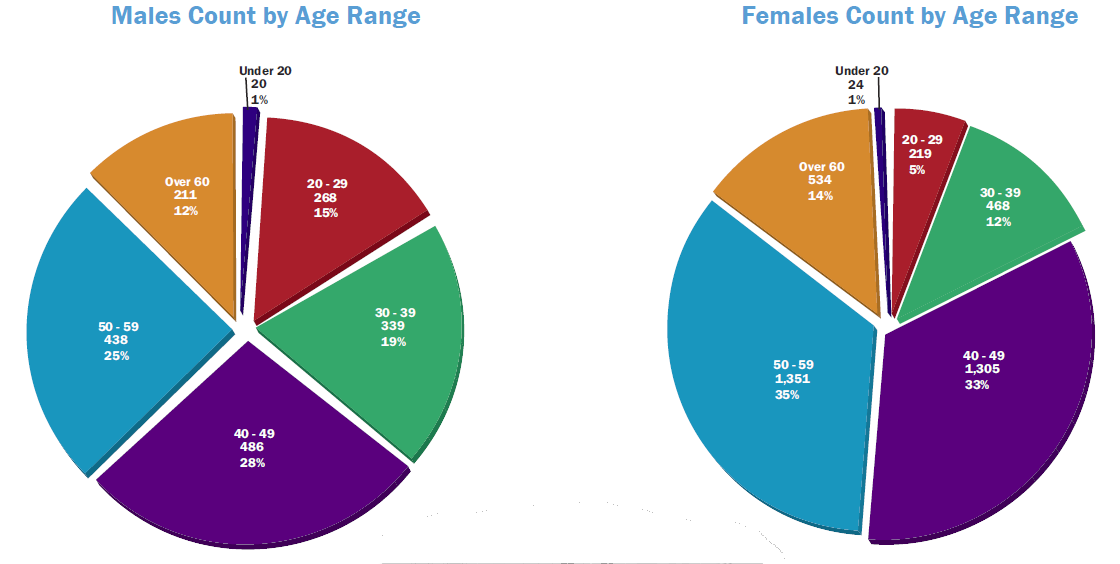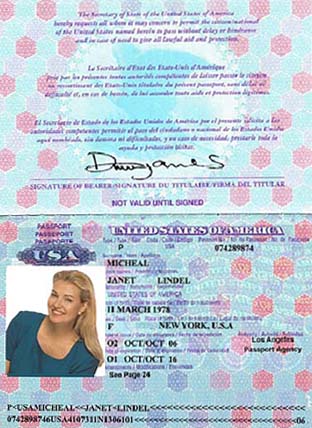Online dating comes with its fair share of anxieties, and one thing you don't want to have to worry about is your safety. Unfortunately, online dating scams, or romance scams, and other dangers are common. Unfortunately it seems that people over the age of 40 are the most frequent targets and victims of this nefarious behavior.
Scammers are constantly looking for new ways to ultimately get your money or assets, but there are common signs you can look out for to stay both in-the-know and confident that the person you're chatting with is genuinely interested in you.
Related:
About online dating scams

Online dating scammers often target older or more vulnerable populations - people they deem are more susceptible to declarations of love and flattery. They see these individuals as people who long for love and who would give up earthly possessions to retain it.
Older adults in particular may not be particularly knowledgeable in areas ranging from common internet dangers and scam awareness to government document regulations. For example, scammers may falsify a passport to prove their identity to their victim, but the passport will contain flaws the victim may not be able to spot.

In the passport shown above, victims may ignore obvious signs of deception, such as the photo that is not regulation size, and in which the woman's pose is not regulation-approved, and would therefore never be allowed on a passport.
According to Norton, online dating scams have claimed:
- About $1 billion from Americans and Canadians combined
- Over $211 million in 2017 alone
And did you know? About one in ten online dating profiles are fake.
Some common goals of scammers don't just include stealing your money. They may also demand access to the following:
- Explicit photos or videos
- Bank accounts
- Assets
- Credit cards
- Passports
- Email accounts
- SSNs
- Fraudulent action on the part of the victim: in extreme cases, scammers will convince the victim to break the law to obtain what the scammer is asking for, whether it be falsifying passports or citizenship or other.
Take particular care when sending explicit photos or videos, or being explicit in video chats. An increasing scam is to gain explicit photos or videos of a person and then demand payment. The blackmailer will often claim to have the contact details of your friends and family, which may or may not be the case. They will threaten to send them the photos or videos to them if you don't pay.
This has caught out many people, including celebrities, so don't fall for it.
Online dating scams: Signs to look out for
If you're new to online dating or afraid of becoming a victim, there are some signs to look out for. Often, scammers will use different variations of the same request or excuse to extort what they want out of their victims. Look out for:
- Requests for money
Scammers will often claim that they need financial assistance for an urgent financial matter, such as hospital bills, college or educational debt management, assisting a beloved family member, purchasing a plane ticket to escape a false abuse claim, payment for phone or internet bills to continue communicating with the victim.
If the scammer claims to be based in a foreign country, it's common for the scammer to request money to obtain a passport.
- Excuses to avoid meeting in person or video calling
Scammers don't want to show their faces, for the most part. And chances are, the scammer looks nothing like the photos they have on their profile or the photos that they send the victim. They will often claim a broken webcam or a busy schedule to avoid the interaction. They may also pretend to be "shy" and use the promise of a video call as an incentive for the victim to send them money.
- Military personnel impersonation
To gain the trust of their victim, scammers will pose as members of the military. This also make it easy for them to avoid meeting in person or video calls.
Online dating: Important safety tips
Even if you don't think that the person you're chatting with online is trying to scam you, it's best to err on the side of caution and maintain good practices for your protection. You should:
- Take it slow.
- Never send money to someone you've never met in person.
- Never reveal personally identifying information such as your SSN or address.
- Google their name and reverse image search their profile photos.
- Perform a background check on the individual.
These are just a few of the precautions you can take. For additional information on how to stay safe when online dating, check out our handy guide.
Other online dating scams: Spotting spam and bots
The downside of online dating is the lack of face-to-face interaction, at least when you first start chatting with someone. This leaves users vulnerable to chat bots, or computer programs made to trick real users into thinking they’re interacting with a real person. These programs often attempt to steal credit card or other personal information from real people.
One sign you may be chatting with a bot is that they continually urge you to buy goods and services. Bots are computer programs, which means you should also keep an eye out for odd responses or unnatural wording. While people slip up with the occasional typo, bots often phrase things strangely. Regardless of whether you think the person you’re talking to is real, never give out your credit card information; it’s not worth having your identity or money stolen.
If you’re not sure whether you're chatting with a bot, try being sarcastic; bots don’t pick up on that kind of humor or ask them to repeat a specific word or phrase such as "say the word banana". Finally, if you think you may be chatting with a bot, ask to meet in person. If they continually cite reasons why they can’t meet you, there’s a good chance that you're not talking to a real person, or a scam artist.
Online dating dangers: Sex offenders and other predators
There's little stopping sex offenders from using online dating sites to find either a new partner or a new victim. About 10% of sex offenders create an online dating profile - but it's not just convicted criminals that you should look out for.
Online dating makes it easier for potential criminals to find their next victim. While this is a small percentage of people, it's still best to have baseline safety measures when meeting up with someone new.
Related:


